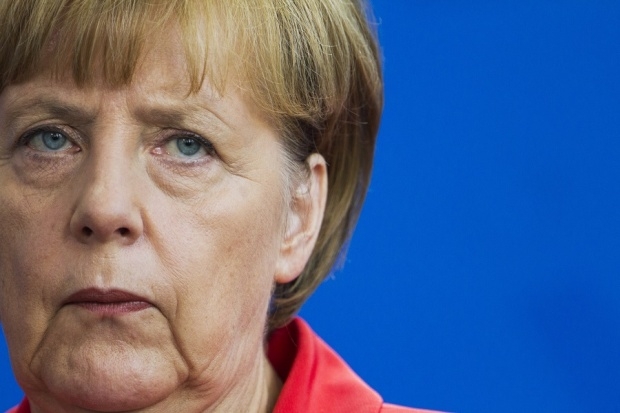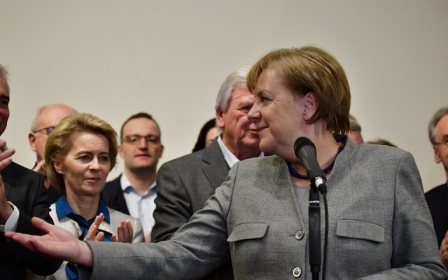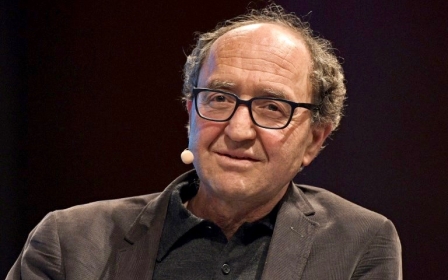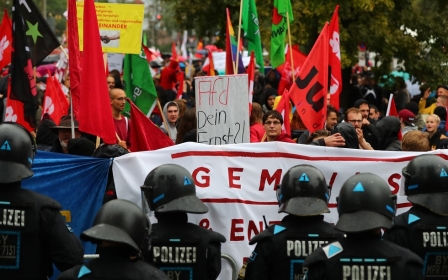Merkel denounces new anti-Semitism from Arab refugees

German Chancellor Angela Merkel denounced the emergence of "another form of anti-Semitism" from refugees of Arab origin in Germany, in an interview with Israeli television broadcast on Sunday.
"We have a new phenomenon, as we have many refugees among whom there are, for example, people of Arab origin who bring another form of anti-Semitism into the country," Merkel told the private Channel 10 network.
The chancellor added that “to our regret, anti-Semitism existed in Germany even before this,” the Jerusalem Post reported.
Her remarks come after an alleged anti-Semitic attack on Tuesday in Berlin caused a stir in Germany.
According to the German tabloid Bild, the main alleged perpetrator, who surrendered to police, is a Syrian refugee who lived in a centre for migrants near Berlin.
In the interview, Merkel said the German government had appointed a commissioner to fight against anti-Semitism.
"The fact that no nursery, no school, no synagogue can be left without police protection dismays us," she said.
Merkel also reaffirmed that Israel's security was a central concern for Germany because of its "eternal responsibility" for the Holocaust.
But she rejected the possibility that Berlin would follow Washington's example and move its embassy from Tel Aviv to Jerusalem.
"We must work for a two-state solution, and according to that, the status of Jerusalem must be clarified," she said.
Germany remains one of Israel's closest allies, but the relationship has been strained at times over the Netanyahu government's settlement expansion in the West Bank and East Jerusalem, war-won lands the Palestinians seek for a future state, Haaretz said.
"I think this situation causes some headaches because the two-state solution is not becoming more likely through a policy of settlement building," she said. "Therefore, we have a difference of opinion."
The US embassy move has angered Palestinians who see East Jerusalem, annexed by Israel, as the capital of any future Palestinian state.
Merkel also reiterated Germany's support for the continuation of the Iran nuclear deal, which provides for curbs to Tehran's nuclear programme in exchange for relief from international sanctions.
"We think it's better to have an agreement, even if it's not perfect, than no agreement," she said.
Israeli leaders and US President Donald Trump's administration think the deal - signed in 2015 between Iran and the world's five nuclear powers, plus Germany - is too lax.
Trump has threatened to restore sanctions against Iran and withdraw from the deal if his European partners do not "fix" it by 12 May.
New MEE newsletter: Jerusalem Dispatch
Sign up to get the latest insights and analysis on Israel-Palestine, alongside Turkey Unpacked and other MEE newsletters
Middle East Eye delivers independent and unrivalled coverage and analysis of the Middle East, North Africa and beyond. To learn more about republishing this content and the associated fees, please fill out this form. More about MEE can be found here.




